Annette Boenink is the winner of the Frits Huyse Award 2024. Congratulations!
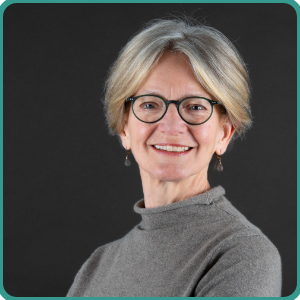
Annette Boenink
Annette Boenink, psychiatrist, is the head of the Consultation-Liaison Psychiatry in Amsterdam UMC, location Vumc. She studied Medicine at the University Maastricht – enjoying the experimental small group educational system -, and specialized in Psychiatry at the UMCG in Groningen. Afterwards she worked at the Psychiatric CL-Service at the VU Hospital in Amsterdam, at the time headed by Frits Huyse. She succeeded him after his resignation, and building on his work, she expanded the CL service into a full-fledged hospital psychiatry department with a Medical – Psychiatry Unit and an outpatient clinic: the Amsterdam UMC Centre for Psyche & Soma.
Annettes commitment to delivering integrated care that is founded on an understanding of a patient’s values, is accompanied by a commitment to teaching. Education was also the topic of her PhD thesis titled: “Teaching and Learning Reflection on Medical Professionalism”.
She participated in the EACLPP Workgroup on Training in Consultation-Liaison Psychiatry and Psychosomatics. She is an active member of the EAPM Special Interest Group Integrated Care and Management of Complexity, and of the Intermed consortium.
She contributed to Dutch guidelines about C-L Psychiatry, General Hospital
Psychiatry and field standards for Med-Psych Units. She co-edited Dutch textbooks about Consultation-Liaison Psychiatry and Hiv and psychiatry and wrote book chapters about Medical care for psychiatric patients, and about Multidisciplinary care.
Annette has been a board member of the National organization of Consultation-Liaison and Hospital Psychiatrists (ACZP) and the Dutch Federation for Hospital Psychiatry (NFZP).
Her current interests are the implementation of Shared Decision Making and fostering interprofessional learning around integrated care for complex patients.
Interview with Dr. Annette Boenink on the occasion of winning the 2024 Frits Huyse Award
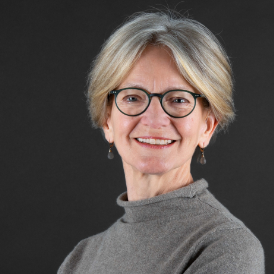
Annette Boenink, MD, PhD
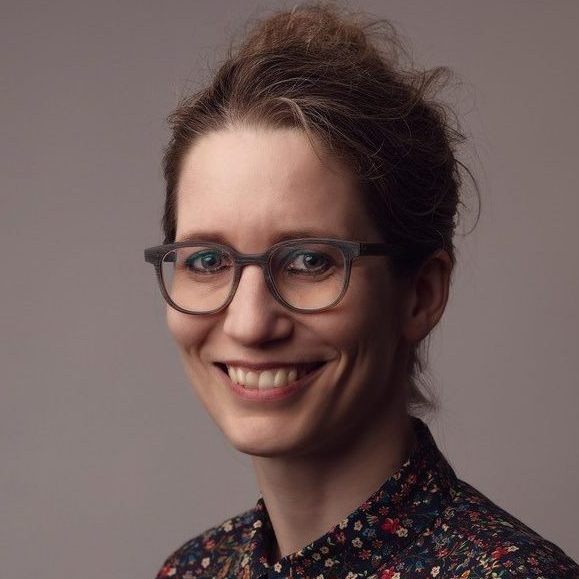
Susanne Fischer, PhD
Dear Dr. Boenink, my heartfelt congratulations to you for winning the Frits Huyse Award for your outstanding contribution to the development of consultation liaison psychiatry and integrated care.
Thank you! It is a great honor to me to be the recipient of the Frits Huyse Award. I consider it as a prize not just for me but also for my team, my current and former colleagues in Amsterdam, the consultation liaison psychiatrists and consultation liaison nurses who try every single day to establish the best integrated care in the general hospital. Frits Huyse was the head of the department of consultation liaison psychiatry in Amsterdam when I started my career in that hospital. I learnt so much from Frits in the many years that he was the head of our department in Amsterdam. Working with him highly inspired me and made me the consultation liaison psychiatrist I am now. I witnessed him working with patients, but also teaching, organizing research, creating a European research network, and a Dutch consultation liaison network, and so much more. I saw that he was really driven to develop the best integrated care, and that he had a very original and creative mind. Frits introduced me in the European Consultation Liaison Working Group, and in the European clinical and research group that developed the Intermed tool for delivering integrated care for complex patients. I participated in the validation research of the Intermed Self-Assessment, the IMSA, and, to this day, I enjoy participating in this group of like-minded colleagues.
May I begin by asking what got you into consultation liaison psychiatry in the first place?
I got into the field of consultation liaison psychiatry partly by coincidence. When I graduated as a physician in 1988, I was already interested in psychiatry. But at that time there was a lot of unemployment among starting physicians. A fellow student drew my attention to a job in consultation liaison psychiatry in a general hospital in The Hague, which I could apply to because he had been offered and had taken another job! In this hospital, geriatrics was also done on a consultation base, by Joris Slaets, who was a real role-model for me. I was quite unexperienced, I think at that time I could hardly recognize a delirium, but I had wonderful supervisors and a steep learning curve. I soon discovered that I loved the field of consultation liaison psychiatry. I enjoyed the collaboration with colleagues from other medical departments, and with the nursing staff, and the variety of clinical problems we encountered. I experienced that psychiatry had a lot to offer to the general hospital. And I also liked the fact that, in this field, you can learn something from someone every day. So, after finishing my psychiatric residency I made a deliberate choice to return to the general hospital and work in consultation liaison psychiatry. And I was lucky that I could get this position in Amsterdam at that time, because Frits was already making a name, and I knew the VU-hospital in Amsterdam was a good place to work for those who were interested in consultation liaison psychiatry.
Among your many achievements, which do you consider the biggest one?
All my achievements were made in a team setting, so I prefer to talk about our biggest achievement. I think the realization of a Med Psych Unit (MPU) in a completely new and innovative format in the VUmc hospital in Amsterdam can be considered a big achievement. There were so many difficulties to overcome, so many people that needed to be convinced, financial means that had to be found. It was really an “integrated effort”, we had to convince medical specialists from all departments in the hospital to contribute to it. But in the end, our MPU team, headed by CL-psychiatrist Hansje Heller and head nurse Liede Maas, could develop a wonderful ward, highly valued by patients, family and many professionals as well. The MPU was called “a gem in the organization” by the Joint Commission International quality accreditation committee that visited our hospital. Unfortunately, due to the merging of two hospitals in Amsterdam, the ward is now in transition: it has been transferred to the other location where we are rebuilding it now. Another team achievement is that for many, many years now, we have been quite successful at organizing a weekly Multidisciplinary Case Discussion about one complex patient care situation: over and over again, we convince doctors (in and outside the hospital), nurses, paramedical staff and mental health professionals that they should clear their schedules for one hour, so we can discuss the biopsychosocial aspects of a complex patient case. Sometimes the patient is also present at the meeting. Together, we try to come up with an integrated care plan. One of the psychiatrists on our team (Klaas Nauta) has now developed a format for these case discussions that explicitly promotes interprofessional learning.
This is indeed an impressive achievement and a perfect example of integrated care. What exciting projects are you currently working on?
I am very enthusiastic about what we call the “sitters” project (a nurse-led intervention – again Liede Maas and our CL-nurse-specialist, Ype van der Brug) that we are implementing now. Perhaps first I should say that this project has developed in a wonderful way, and now “sitters” as a name is too narrow to cover all the activities that are developed. We are recruiting medical students and offer them a half-day training. Afterwards, they are being employed, first on our MPU as part of a research project, but now also on other medical wards, to “sit” with patients who are confused, to provide safety and company. The nurses are happy that they have more time for their tasks, and the sitters experience this employment as valuable and educational for themselves. We have already observed that, in certain situations, sitters may also be a valuable contribution not only for patients’ safety but also for the quality of their care, e.g. for patients who are depressed, demoralized, or anxious. Furthermore, we are contributing to a multi-center Shared Decision Making (SDM) research project. Through this project, our team has learned to structure the conversations with our patients much more consciously and explicitly than we used to do, applying SDM principles. Especially, it is important to elaborate on the patients’ values in life: what matters most to them? You have to know the “person” (and their loved ones), not just the “patient” in your consulting room. In my view, by combining the principles of SDM and integrated care, we can deliver truly personalized care. Iris Keuning, one of the psychiatrists of our Centre for Soma & Pyche, and Camille ten Velden, our project assistant, continuously teach all new residents and other trainees at our department in these principles. I realise that in this interview I mention some of my staff members by name, but I really value the contributions of all of them.
These sound highly interesting and important to improve clinical care. Speaking of clinical care, what advice would you share with young clinicians interested in a career in consultation liaison psychiatry?
That is a wonderful question I love to answer. There are many pieces of advice I would like to share with my young colleagues. First, I would advise them to invest in the contacts with other specialists. To come back to the lessons of Frits Huyse: He taught us that it is important to gain knowledge of the somatic illnesses of the patient, and to foster the contacts with colleagues from other departments. Second, I would advise them to try to work in a multidisciplinary team and to perform the consultation as much as possible together with the CL nurses, since you can learn a lot of them. They often have a very good view on a patients’ biopsychosocial care-needs and are experts in giving advice to the treatment team to get along with patients with difficult behaviour. Third, to perform good CL consultation, it is very important to involve the patient’s social system, such as loved ones, but also neighbors or even the local policeman and of course the outreaching psychiatric service. Last but not least, I would strongly recommend to do follow-up visits at the clinical wards as much as you can, and continue after the first crisis has resolved. You will see with your own eyes how the patients’ physical and mental condition interact and change over time.
Thank you very much for your time and openness and I am looking forward to seeing you at the EAPM conference in 2024!
At the 2024 EAPM Conference in Lausanne Dr. Boenink will give a lecture ‘Back to basics: reflections on integrated care’
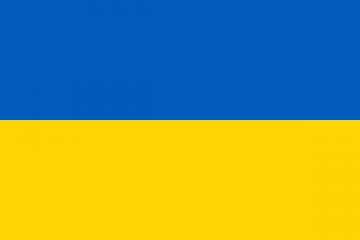

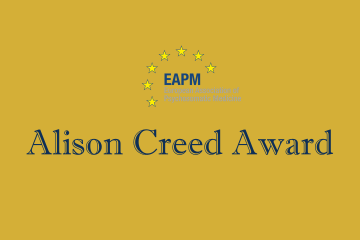
0 Comments